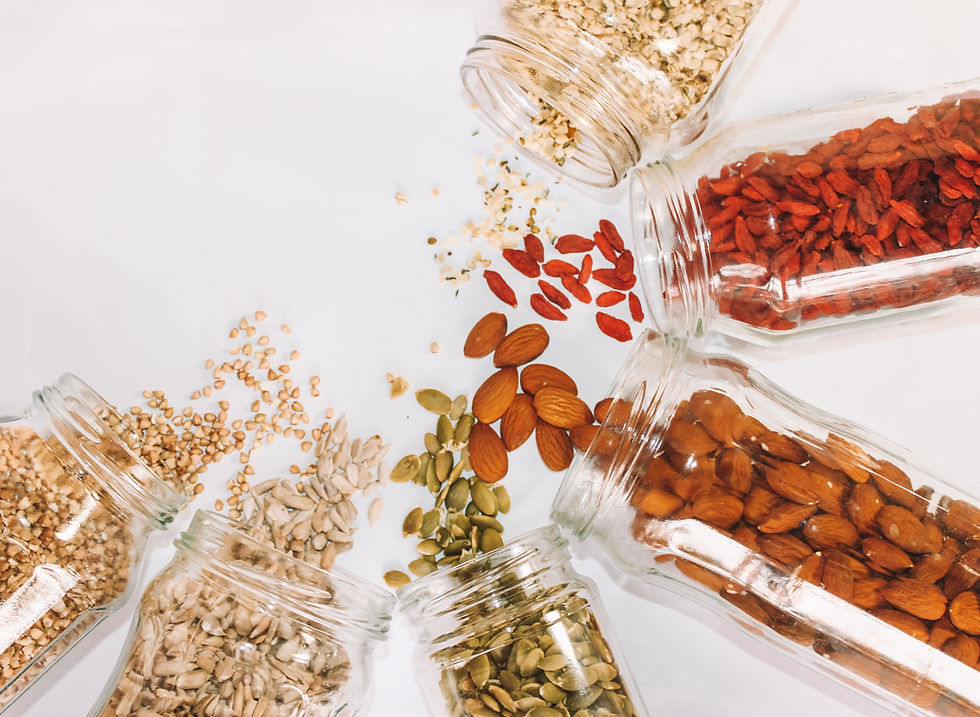Here's how food can improve symptoms of ADHD
- courtneyellisnutri
- May 12, 2024
- 2 min read
For all my ADHD girlies and guys out there, did you know food can help common symptoms of ADHD?

Some common symptoms are:
being unable to sit still
constantly fidgeting
being unable to concentrate on tasks
excessive physical movement
excessive talking
acting without thinking
A person with ADHD has differences in brain development and brain activity and many studies show the positive impacts of nutrition on brain development, especially in childhood. While eating a well-balanced, varied diet will ideally meet your nutrient requirements, there are specific nutrients in your diet that have been linked to improving brain health and development. These nutrients include polyunsaturated fatty acids (healthy fats), vitamin D, magnesium, zinc and iron has positively affected ADHD symptoms.
Let’s break it down:
Healthy fats are important for neurotransmitter function (our brain signals). This can assist with focus and brain fog.
Foods high in polyunsaturated fat are: fish, flaxseeds, walnuts, sunflower seeds, tahini, soybean, sunflower, safflower, canola oil and margarine spreads made from these oils and pinenuts.
Magnesium is used to create neurotransmitters with roles in attention and focus.
Foods high in magnesium are: leafy green vegetables such as spinach, nuts and seeds, wholegrains and legumes such as lentils.
Zinc and iron supplementation (with support of a GP) has been shown to improve memory, attention, and reduce irritability in those with ADHD. Zinc plays a crucial role in brain activity of learning and memory. Iron plays a role in oxygen transportation not only in the body but also the brain and assists with neurotransmitter synthesis (bring together these neurotransmitters).
Foods high in zinc are: oysters, red meat and poultry, seafood, nuts and seeds, wholegrains and dairy products. Foods high in iron are: meat and poultry, eggs, iron-fortified cereals, leafy green vegetables (spinach, silverbeet, kale, green salad leaves), legumes (baked beans, lentils, chickpeas) and tofu.
Vitamin D is important for brain health and development. A study found that children with vitamin D deficiency were more likely to have ADHD. You can get your daily vitamin D through healthy and safe sun exposure, as food alone generally falls below the requirements.
But foods that are a good source of vitamin D are: oily fish such as salmon, mackerel, dairy and plant milks fortified with vitamin D, egg yolk and fortified cereals.
If this is something you are living with, knowing food can play a role in symptom management can be a game changer.

-Courtney




Comments